Confessions: Video publishers get honest about their frenemy, Facebook
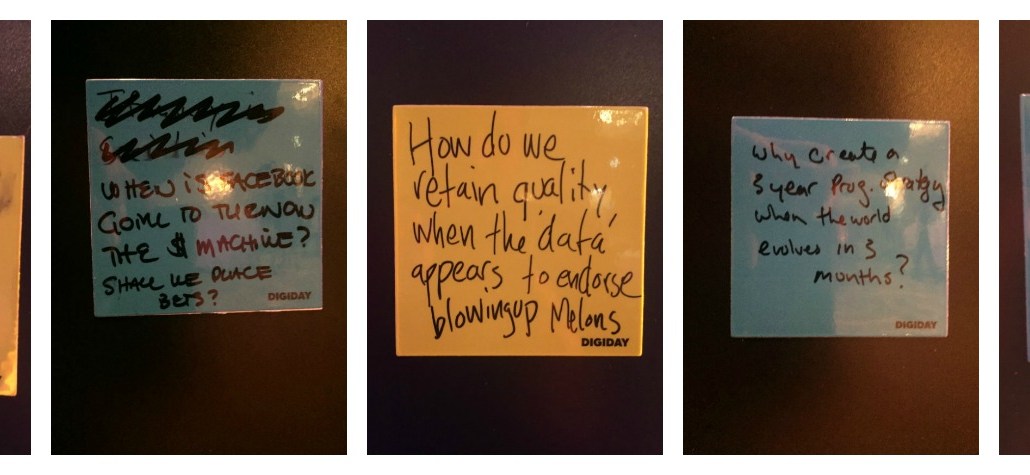
Facebook has taken over the video world — and in doing so is presenting publishers with a slew of new challenges.
At Digiday’s first Video Anywhere Summit in Palm Beach, executives from a wide range of media companies came together to discuss the big challenges they’re facing in the industry. A key theme quickly emerged: not only is everyone racing to distribute on platforms, but the platforms themselves are beginning to worry the content owners. Will all of the investments publishers are making in Facebook and other platforms ultimately be worth it?
We asked publishers to write down the biggest challenges they face, and then asked a few to elaborate anonymously. Here’s what they said:
Protect ya neck
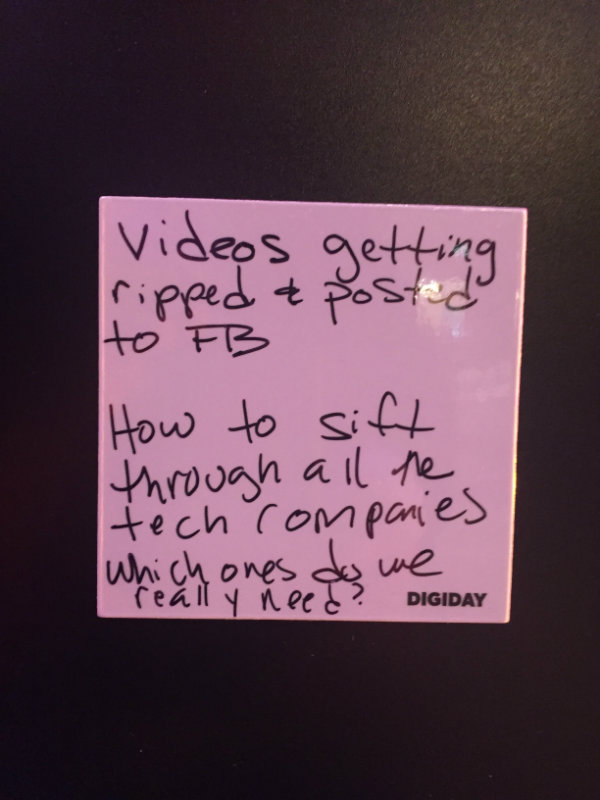
“We invest so much in actually making the content and then to see it get ripped off and put on Facebook is a problem. Everyone likes to complain about YouTube. But YouTube has the most sophisticated content ID technology out there. If someone rips off your content there, they have a way for you to get it taken down. All of these other platforms, I don’t know what their plans are to solve that.”
No crystal ball
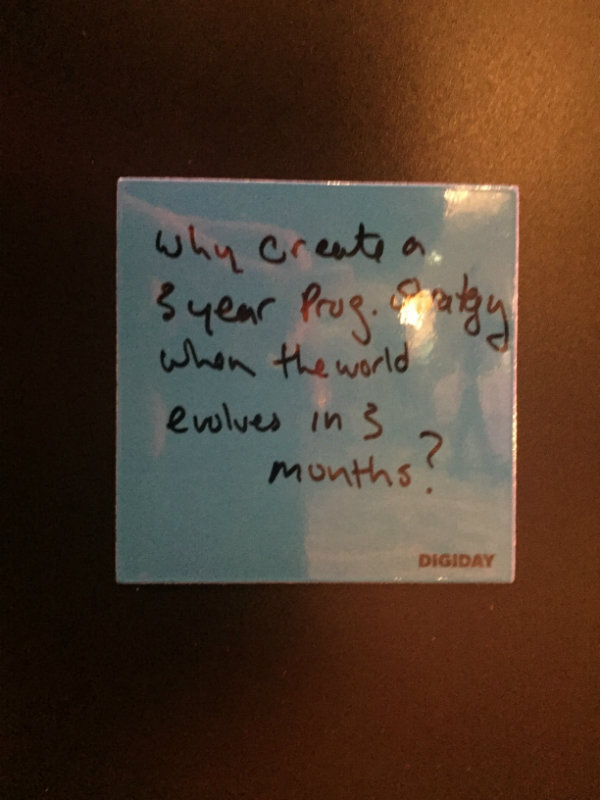
“Everyone wants to have a programming strategy that plans ahead for the next three years. But no one knows what the fuck is going to happen three months from now, so how can you possibly plan for the next three years? Should you have a three-year goal, sure. But three-year plan? C’mon.”
Show us the money
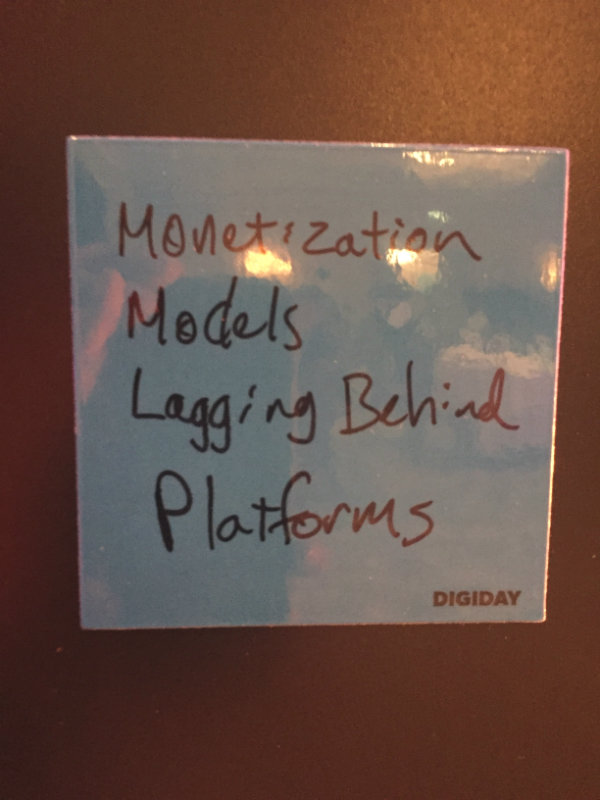
“Platforms are evolving faster than monetization strategies. On one hand it’s amazing to reach people so directly and at scale, but we need the monetization in place to really build it into a sustainable business. No one is really sure how Facebook is going to make that happen.”
A race to the bottom
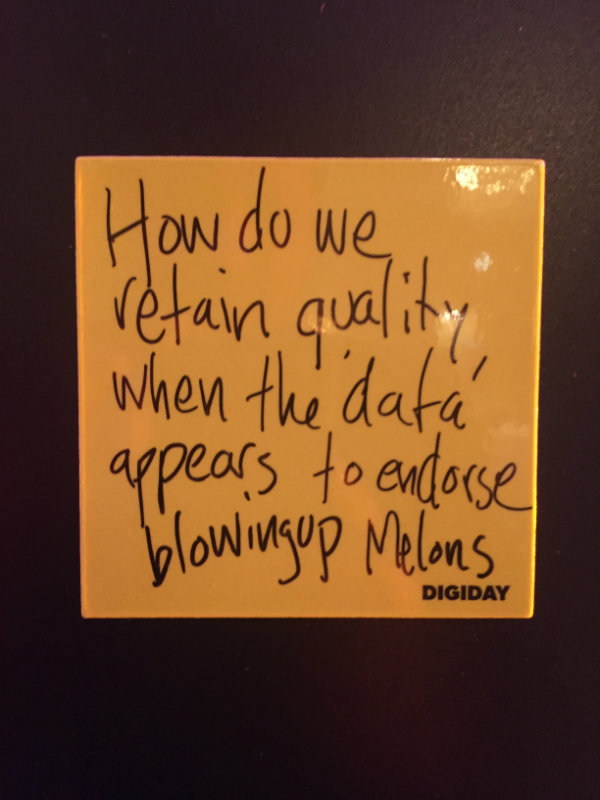
“As we start to look at the data of what people want to see, we look at Upworthy, BuzzFeed, and we start to wonder if we’re all one day just going to let the data dictate the programming. Or will we still continue to hire talented people and actually trust their opinion?”
No, really: Show us the money

“Well, they turned the money machine on halfway by lifting the branded-content restrictions last week. There were so many guardrails around that. By lifting them they’re halfway there. Now we need them to turn it all the way to 11. I don’t know what that’s going to look like. It’s not going to be pre-roll. It’s not going to be mid-roll. But I’m curious to know what they have in mind. I wish someone from Facebook would call me and tell me.”
? in the streets; Facebook between the sheets
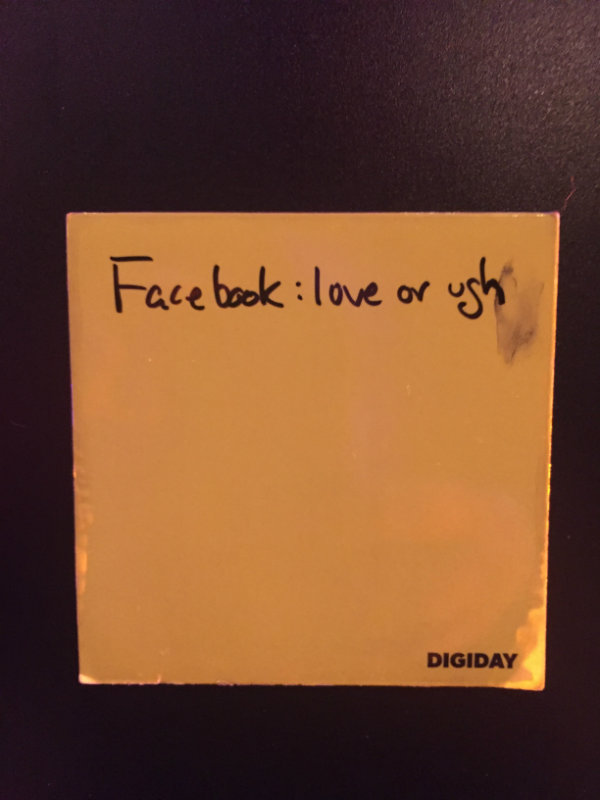
“Facebook is like a hot lover who you know is bad for you. You can’t stay away but you don’t know where it’s going. It’s tremendously addictive for producers and editors that make the media, for the business managers that run operation. But no one knows if this is just a short-term fix. Is the hangover going to burn me, or could it turn into something wonderful?”
More in Media

Meta AI rolls out several enhancements across apps and websites with its newest Llama 3
Meta AI, which first debuted in September, also got a number of updates including ways to search for real-time information through integrations with Google and Bing.

Walmart rolls out a self-serve, supplier-driven insights connector
The retail giant paired its insights unit Luminate with Walmart Connect to help suppliers optimize for customer consumption, just in time for the holidays, explained the company’s CRO Seth Dallaire.

Research Briefing: BuzzFeed pivots business to AI media and tech as publishers increase use of AI
In this week’s Digiday+ Research Briefing, we examine BuzzFeed’s plans to pivot the business to an AI-driven tech and media company, how marketers’ use of X and ad spending has dropped dramatically, and how agency executives are fed up with Meta’s ad platform bugs and overcharges, as seen in recent data from Digiday+ Research.





